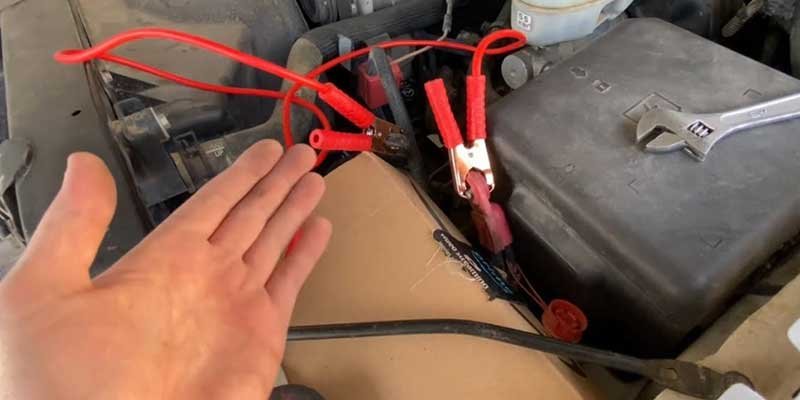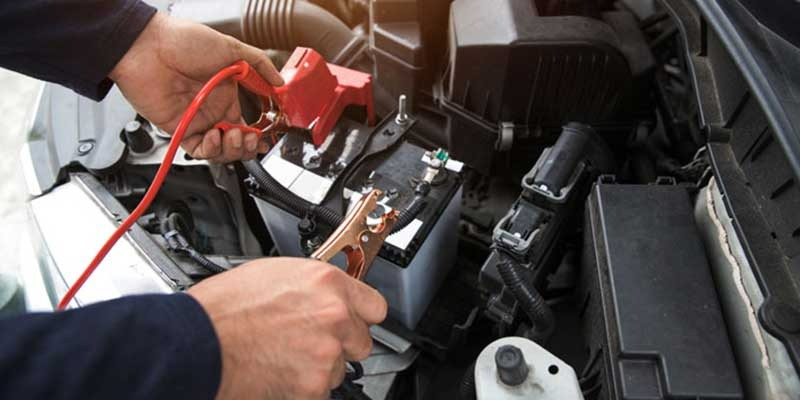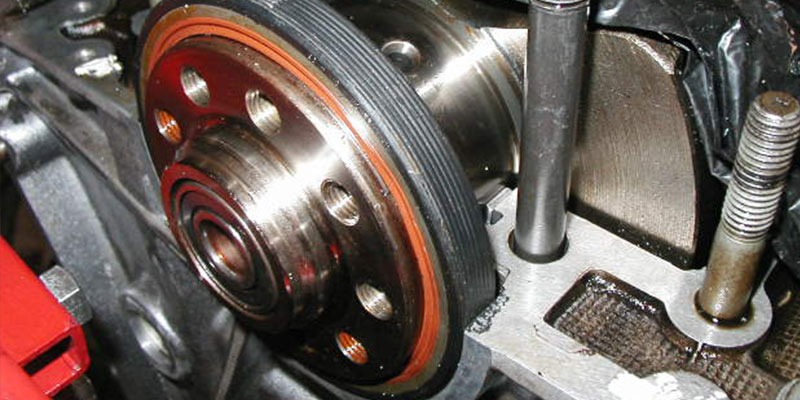The Ford announcement of calling off its Ford Fusion in April 2020 has led to a spurt on the internet – ‘How long do ford fusion last? First launched in 2006, Ford Fusions are midsize cars available in two generations of Fusion. You can find the 3 variants for ford fusion – gas/plug-in electric hybrid, gasoline, and electric/gas hybrid models.
Coming the to the main question, How long does ford fusion last? It smoothly lasts up to 200000 miles. Well-maintained ford fusion cars can last up to as long as 2500000 miles, as claimed by Consumer Reports. Fusion 2020 is a sedan model with a gentle ride, comfortable cabin, and intuitive infotainment system.
Why did Ford Stop Making Fusion?
There have been serious issues reported regarding the Fusion, which even many owners are unaware of. Fusion has documented the top listed reasons with the car as tricky lug nuts, engine stalling, transmission shifting, and loss of acceleration. Etc.
Ford has decided to focus on its most popular SUVs like Rugged new Bronco and Explorer. The Ford Company has decided to allocate its budget to these models and thus discontinued the Ford Fusion.
How Reliable is Ford Fusion?

With its reliability rating of 4/5 star by JD Power 2020, it is among the most reliable car. The customer appraised the car in terms of comfortable seating. Its durable make can easily withstand the bad road conditions. Many customers complained about the leaky transmission fluid beginning from 76.500 miles. Many customers reported the creak and vibration problems as well.
But overall, Ford Fusion is a reliable car that can easily last up to 200,000 miles.
How Many Miles Can You Expect From a Ford Fusion?
Many Fusion car owners report that their car lasts up to 15 years. On average, with the right maintenance, a Ford Fusion easily lasts up to 2,00,000 miles on an average. The reliability of the fusion cars can be assessed because they can even last up to 250,000 miles if properly maintained.
Are Ford Fusions Expensive to Maintain?
The average maintenance costs for Fusion account for $581, which is considerably low compared to the other vehicles in the market. Ford Fusion’s 2012 and 2013 model years are considered best by the ford motor company has worked out extensively to fix all its bugs in its production cycle.
Tell Me the Problem With the 2010 Ford Fusion?

In 2010, Ford Fusion faced many issues compared to other midsize cars of that time. The 2010 Fusion had a terrible year. More complaints than 2009 models, and Fusion has received over four times as many. Power steering problems accounted for the highest complaints, with Ford’s 2009 and 2010 models occurring at around 1,00,000 miles.
How Does the 2010 Ford Fusion Compare to Other Cars?
Ford Fusion has one of the strongest competitors, as the 2019 Honda Accord starts at $23,570. Features such as excellent handling, quick acceleration, roomy interior, and reasonable economy make it one of the strongest competitors of Ford Fusion cars.
Both Honda Accord and Ford Fusion give you 2,00,000 miles, making them reliable players. Another competitor is Hyundai Sonata, which reached 2,00,000 miles and is considered reliable at par with Ford Fusion.
Both Hyundai Sonata and Fusion encounter rusting issues, but Fusion is marked as a reputable brand for long-lasting manufacturing vehicles.
How Long Will the 2010 Ford Fusion Last?

As we have already discussed, the Ford Fusion cars can last up to 2,00,000 miles owning proper maintenance. Here are certain factors that play a decisive role in extending the life of 20210 Ford Fusion cars;
1. Proper Fluid Replacement
There are many other vital fluids that your car needs, just like oil. You need to pay attention to:
- Antifreeze
- Brakes
- Steering
- Windshield
Each one should be replaced after a set period before they become completely worn out. It is the best way to ensure your car works well and prevents surprises.
2. Spark Plug Replacement
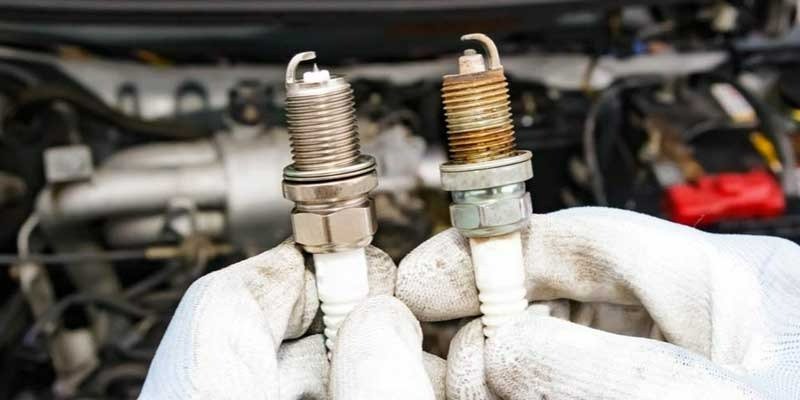
Every vehicle needs to spark plugs. They are essential for the car’s ignition system to work.
They must be replaced after their cycle has ended. Platinum and iridium spark parks are widely used in Ford Fusion cars. Iridium is 6X stronger and 8X harder than platinum leading to higher spark plug quality in Ford Fusion.
3. Transmission Maintenance
This system makes the wheels turn. This system draws power from the engine and allows the vehicle to move properly. The recommended Ford Fusion transmission service life is between 80,000 miles to 1,80,000 miles.
4. Replace the Air Filter
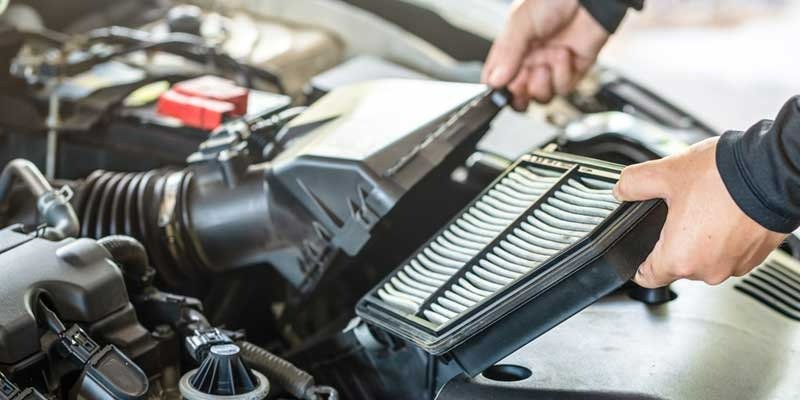
It keeps the engine clean of any solid residues. It also plays an important role in fuel consumption.
A dirty filter will prevent air from passing through and may cause the combustion mixture to be altered.
5. Oil Change.
Regular oil changes will result in better lubrication and a reduction in friction between the various metal parts of the vehicle. It can cause engine damage if you fail to change the oil regularly. Use synthetic oil instead of conventional oil to extend the engine’s life.
6. Tires
Michelin tires are used in most fusion cars and last up to 10 years. The company advises maintaining the air pressure in For tyres for their long-lasting performance. The loss of air pressure leads to higher wear and tear types and affects the fuel economy adversely.
Ford Fusion’s Features

It is important to understand the main characteristics of these vehicles to determine their useful life.
1. First-Generation
The Mazda 6 was the basis of the first Ford Fusion. They had three chrome bars, and the gasoline engines could produce up to 162 horsepower.
The gearbox contained five gears. It was manual. On the other hand, the following models featured an automatic gearbox with another gear. The transmission system was upgraded to six speeds in 2010. A fuel deceleration cutoff was also added to the system to increase the fuel economy.
2. New Generation
Ford Fusion has received new changes, including:
- Automatic gearboxes
- Configurations of suspension and tires
- Safety system
- Engine with higher capacity
- Intelligent traction
The hybrid model was created, which could run on either gasoline or electricity. It was very popular among the masses because of its automatic transmissions.
The 2017 version of this model was redesigned, and many internal components now have the technology. It is why the Ford Fusion continues its dominance in the market. The 2020 Ford Fusion Hybrid currently combines power, efficiency, and premium aesthetics.
How Long do Ford Fusions Last?
If you maintain a regular maintenance schedule, a Ford Fusion can last 200,000 mi. Owners claim that the car will last 15 years. However, this depends on the vehicle’s year, the engine type, and how much you drive each year.
1. Miles
Miles can be used to measure the length in many countries. They are generally used for large and small aircraft. Mileage is key when it comes to automobiles.
Each automobile has a limit on how many miles it can be driven. The vehicle will cease to run once it reaches its limit. The model you choose will determine this since no two vehicles are the same.
Ford Fusions can go 200,000 miles.
2. Type of Engine
The type of engine your car uses is another aspect to consider. It will impact how long the car lasts. There will also be versions with a shorter life span.
The Fusion is standard with a 175-horsepower 2.5-liter four cylinder engine, mated to an automatic six-speed transmission. The Fusion isn’t very responsive with this powertrain. It’s better to get one of the more powerful engine options.
3. Year of the Vehicle
It is important to know the year of your car. Parts of a 2007 car may be very worn and difficult to replace. It will accelerate wear and tear as they may not be made anymore.
4. Maintenance Quality
A slow pace does not best serve these cases. It is better to take your own time and properly replace and repair the vehicle’s internal fluids. You will not gain from poor maintenance.
Factors Affecting Ford Fusion Lifespan
Driving Habits and Their Impact on Longevity
Driving habits play a significant role in determining the lifespan of any vehicle, including the Ford Fusion. Aggressive driving, such as rapid acceleration and hard braking, can cause undue stress on the engine, transmission, and other components, resulting in faster wear and tear. According to a study by the National Highway Traffic Safety Administration (NHTSA), aggressive driving can reduce a vehicle’s lifespan by up to 30%.
Conversely, adopting a smoother, more conservative driving style can significantly prolong the life of your Ford Fusion. By accelerating gently, maintaining a consistent speed, and braking gradually, you can minimize strain on the vehicle’s components and maximize its longevity.
Climate and Environmental Factors
The climate and environment in which you drive your Ford Fusion can also impact its lifespan. Extreme temperatures, whether hot or cold, can stress the engine, battery, and other components. For example, a study by the Department of Energy (DOE) found that vehicles operating in extreme heat experienced a 15% reduction in battery life.
Furthermore, driving in areas with high levels of road salt or exposure to salty air can accelerate corrosion, potentially reducing the vehicle’s structural integrity and lifespan. Regularly washing your vehicle, including the undercarriage, can help mitigate the effects of corrosive elements.
Quality of Replacement Parts and Repairs
The quality of replacement parts and repairs can also affect the lifespan of your Ford Fusion. Using genuine or high-quality aftermarket parts, as well as ensuring that repairs are performed by qualified technicians, can help maintain the vehicle’s performance and durability. According to a survey by Consumer Reports, vehicles repaired with genuine parts experienced a 10% longer lifespan compared to those using low-quality aftermarket parts.
What are the Common Problems Experienced by Ford Fusion?

Ford Fusion cars are well-known for their reliability, but they can also have faults. These are some of the most frequent problems found in Fusion cars:
- Engine stalls
- Fires
- Acceleration loss
- Transmission replacement
- Leaks
- Steering failures
You can improve each of these breakdowns by performing optimal Maintenance on the model.
Tips to Extend the Life of Your Ford Fusion
Proper Maintenance Practices
Adhering to a proper maintenance schedule is crucial for extending the life of your Ford Fusion. Regular oil changes, fluid checks, and component inspections can help prevent potential issues and ensure optimal performance. Consult your vehicle’s owner’s manual for the recommended maintenance intervals and follow them diligently.
Addressing Issues Promptly
Proactively addressing any issues that may arise with your Ford Fusion can help prevent further damage and prolong its lifespan. Ignoring warning signs, such as unusual noises or a check engine light, can lead to more severe problems and costly repairs down the line. By promptly addressing any concerns, you can minimize the risk of extensive damage and maximize your vehicle’s longevity.
Consistent Driving Habits
As previously mentioned, adopting consistent, smooth driving habits can significantly extend the life of your Ford Fusion. By avoiding aggressive acceleration, hard braking, and erratic driving, you can reduce stress on the vehicle’s components and maintain optimal performance.
Real-life Examples and Testimonials
High-mileage Ford Fusions and Their Owners’ Experiences
Numerous high-mileage Ford Fusion owners attribute their vehicle’s longevity to consistent maintenance, careful driving habits, and prompt attention to any issues. For example, a Ford Fusion owner in North Carolina reported reaching over 300,000 miles by adhering to a strict maintenance schedule and avoiding aggressive driving. Another owner from Florida, whose Fusion surpassed 250,000 miles, emphasized the importance of using genuine replacement parts and addressing issues as soon as they arose.
Factors That Contributed to Their Longevity
In both of these cases, the primary factors contributing to the Ford Fusions’ longevity were consistent maintenance, careful driving habits, and proactive attention to potential issues. By following these practices, Ford Fusion owners can significantly extend the life of their vehicles and enjoy many years of reliable performance.
How Soon Should You Except Rust on a Ford Fusion?
Most ford fusion cars start rusting within 3-5 years of production. The most susceptible part of the Ford Fusion is the trunk lid that catches the rust towards the chrome. As the chrome enters the lid, it leads to rusting of its painted parts.
Two cars model – 2006 and 2007 faced the same issue. This problem was also common with 2010 sports fusion cars. A fusion user, James Marriot, mentioned the rust in the chrome exhaust pipe. Another Ford 2010 user Tob Bibler mentioned that I experienced bubbles in the trunk lid instead of rust.
Conclusion
Many factors affect – How long does the Ford Fusion last? Most Ford Fusion can go up to 2,50,000 miles with proper maintenance, about 15 years of life. Depending on how long your drive Fusion ford and how much you care for it, it can last longer.
Frequently Asked Questions (FAQs) on How Long Do Ford Fusions Last
Q1: What is the average lifespan of a Ford Fusion?
A1: The average lifespan of a Ford Fusion can vary based on factors such as driving habits, climate, maintenance, and the quality of replacement parts and repairs. However, with proper care and maintenance, Ford Fusions can typically last well over 200,000 miles.
Q2: How does the Ford Fusion’s lifespan compare to other vehicles in its class?
A2: The Ford Fusion’s lifespan is generally on par with other vehicles in its class. With proper care and maintenance, it can be comparable to other midsize sedans such as the Honda Accord, Toyota Camry, and Chevrolet Malibu.
Q3: How do driving habits affect the lifespan of a Ford Fusion?
A3: Aggressive driving habits, such as rapid acceleration and hard braking, can cause undue stress on the engine, transmission, and other components, resulting in faster wear and tear. Adopting a smoother, more conservative driving style can significantly prolong the life of your Ford Fusion.
Q4: What maintenance practices can help extend the life of a Ford Fusion?
A4: Regular oil changes, fluid checks, component inspections, and adherence to the recommended maintenance schedule can help extend the life of a Ford Fusion. Consult your vehicle’s owner’s manual for the recommended maintenance intervals and follow them diligently.
Q5: How can climate and environmental factors affect a Ford Fusion’s lifespan?
A5: Extreme temperatures, whether hot or cold, can stress the engine, battery, and other components. Additionally, driving in areas with high levels of road salt or exposure to salty air can accelerate corrosion. Regularly washing your vehicle, including the undercarriage, can help mitigate the effects of corrosive elements.
Q6: What is the impact of using genuine or high-quality aftermarket parts on a Ford Fusion’s lifespan?
A6: Using genuine or high-quality aftermarket parts can help maintain the vehicle’s performance and durability, leading to a longer lifespan. Vehicles repaired with genuine parts have been found to experience a 10% longer lifespan compared to those using low-quality aftermarket parts.

My Name is Christopher Angels, and I am a postgraduate in mechanical engineering. Cars have always excited me as a child, and soon I decided to dive into the world of cars by pursuing mechanical engineering. I also worked as a Mechanic for over 3 years to understand Cars’ anatomy and how each part contributes to its working.
My Name is Christopher Angels, and I am a postgraduate in mechanical engineering. Cars have always excited me as a child, and soon I decided to dive into the world of cars by pursuing mechanical engineering. I also worked as a Mechanic for over 3 years to understand Cars' anatomy and how each part contributes to its working.




